Notice to Vacate Apartment Letter Template
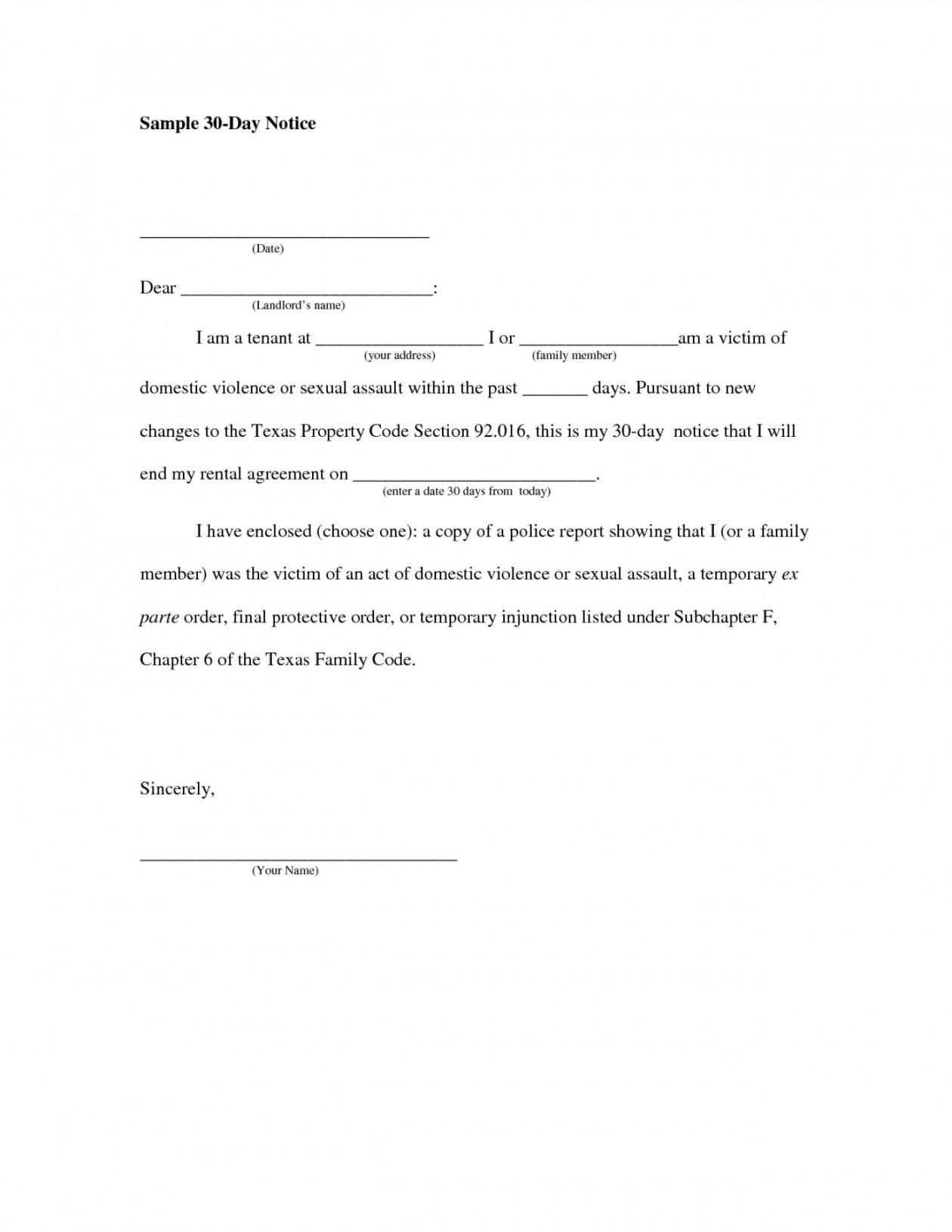
When planning to leave your rental property, informing your landlord in a formal manner is an essential step in ensuring a smooth transition. A well-crafted communication can help avoid misunderstandings and ensure that both parties are clear on the move-out details. Properly notifying the landlord is not only courteous but also often required by the rental agreement.
Creating an effective and professional message is key to making sure everything goes according to plan. It’s important to include specific information, such as your departure date, and to follow any local or contractual requirements. By providing this information clearly, you can avoid potential disputes and facilitate a hassle-free exit process.
Why You Need a Notice to Vacate Letter
Informing your landlord about your decision to leave is an important step in the moving-out process. This formal communication serves as a clear record of your intentions, ensuring that both parties are on the same page. By following the proper procedure, you demonstrate professionalism and respect for the terms outlined in the lease agreement.
Having a written document not only protects you but also ensures that the landlord is given sufficient time to make necessary arrangements. This helps avoid any misunderstandings and can assist in preventing disputes regarding the rental period or security deposit. A well-prepared message provides both clarity and legal protection, making it a crucial part of the moving process.
Steps to Write a Vacate Notice
To inform your landlord about your decision to move out, it’s important to follow a clear structure when drafting your message. The process ensures that all necessary details are included and that the communication is both professional and legally sound. A well-organized statement can help avoid any confusion and maintain a positive relationship with the landlord.
Start by including your full name, address of the rental, and the date you intend to leave. Be sure to specify the duration of your tenancy and confirm compliance with any notice period mentioned in your rental agreement. It’s also helpful to express gratitude for the time spent living in the property and to request a final inspection, if required.
Important Details to Include in Your Letter
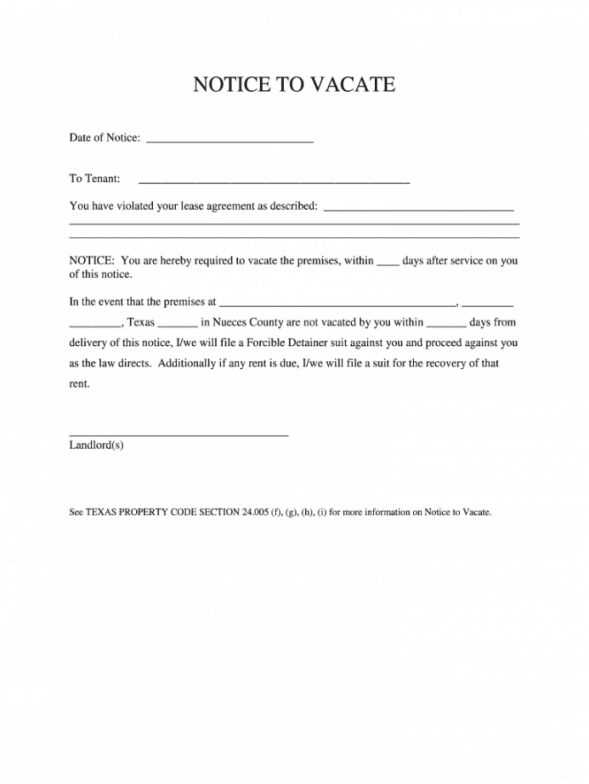
When crafting your formal communication to your landlord, it’s essential to provide all the key details to ensure clarity and avoid potential misunderstandings. Including the correct information not only helps prevent delays but also ensures that both you and the landlord are fully aware of your intentions and obligations.
Key Information to Include
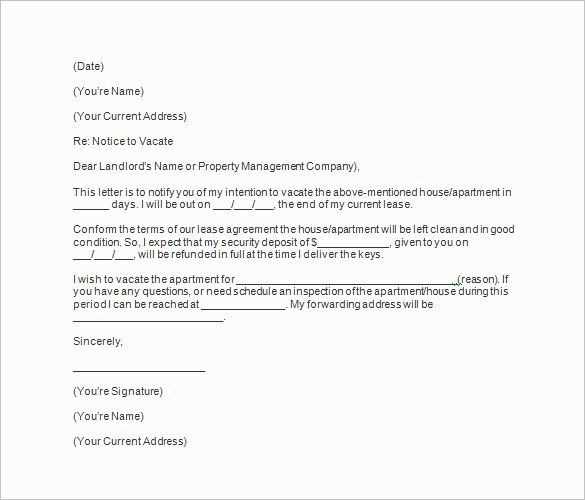
To ensure your message is clear and complete, be sure to include the following details:
| Detail | Description |
|---|---|
| Full Name and Address | Include your full name and the rental property’s address. |
| Move-out Date | Clearly state the date you plan to leave the property. |
| Notice Period | Confirm that you are providing the required notice period as per your rental agreement. |
| Request for Inspection | If needed, request a final inspection to review the condition of the property. |
Additional Considerations
It’s also a good idea to express gratitude for the time spent in the rental and acknowledge any specific terms from the agreement that you are adhering to. This shows professionalism and can help maintain a good relationship with the landlord for future references or rental opportunities.
Common Mistakes to Avoid in a Vacate Letter
When communicating your intent to leave a rental property, there are several pitfalls to avoid. A poorly crafted message can lead to confusion, delays, or even disputes. To ensure the process is smooth, it’s important to be mindful of common errors that can cause unnecessary complications.
Common Errors to Avoid
- Leaving out key information: Failing to include important details such as your move-out date or full contact information can lead to misunderstandings.
- Not following the lease agreement: Some agreements require a specific notice period. Ignoring these terms can result in penalties or issues with your security deposit.
- Vague or unclear language: Being too general in your message may cause confusion about your intentions. Be specific about your plans and requirements.
- Not giving enough notice: Not adhering to the notice period outlined in your agreement can create unnecessary tension and complications.
- Being unprofessional: A message that lacks politeness or professionalism may negatively affect your relationship with the landlord.
How to Avoid These Mistakes
To avoid these common errors, make sure to double-check the details in your message and ensure that it follows the terms of your rental agreement. Use clear and direct language, and be polite and respectful throughout the communication. Taking these steps will help ensure that your transition is as smooth and stress-free as possible.
How to Deliver Your Notice Properly
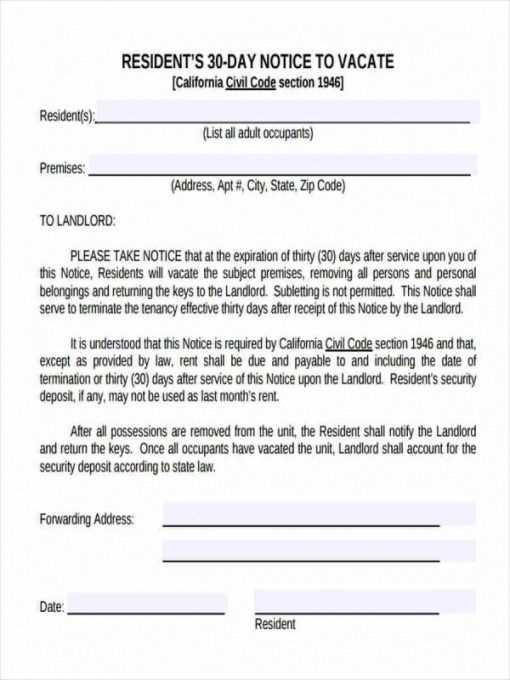
Once you have prepared your message to inform the landlord about your decision to move out, it’s essential to deliver it correctly. The way you present your communication can impact its effectiveness and help prevent any misunderstandings. Proper delivery ensures that your landlord has received the information and allows both parties to proceed smoothly with the next steps.
Methods of Delivery
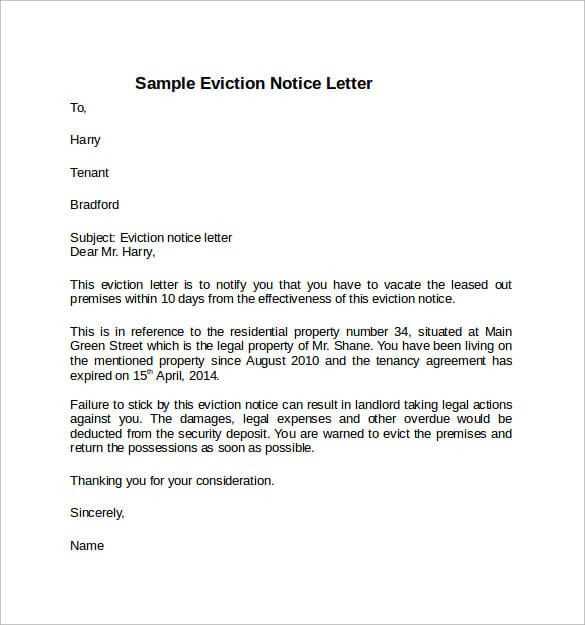
- In Person: Handing over your communication directly to the landlord can be a personal and immediate way to ensure they receive it. Be sure to ask for a receipt or acknowledgment of receipt.
- By Mail: Sending the communication via certified mail or a service that provides proof of delivery can add a layer of security and guarantee that it reaches the landlord.
- By Email: If your landlord accepts electronic communications, sending an email with a read receipt can be a quick and efficient option. However, ensure that the email is professional and clearly states your intent.
Things to Keep in Mind
- Keep a Copy: Always retain a copy of the communication for your records, especially if you send it via mail or email.
- Follow Up: If you don’t receive confirmation within a reasonable time frame, follow up to ensure your message was received.
- Timeliness: Deliver the message within the required time frame outlined in your lease agreement to avoid complications.
By choosing the appropriate delivery method and following these steps, you can ensure that the process of informing your landlord is handled professionally and efficiently.
Legal Considerations for Vacating an Apartment
When preparing to leave a rental property, it’s crucial to understand the legal aspects involved in the process. There are certain obligations and rights that both tenants and landlords must adhere to under the rental agreement and local laws. Being aware of these factors helps avoid legal disputes and ensures a smoother transition when moving out.
Key Legal Factors to Consider
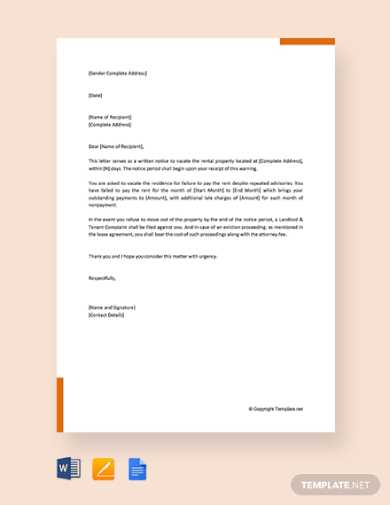
- Notice Period: Most rental agreements require tenants to provide advance notice before leaving. Ensure that you adhere to this notice period to avoid penalties or issues with your security deposit.
- Condition of the Property: It’s essential to leave the property in good condition, as outlined in the lease agreement. Failure to do so may result in deductions from your security deposit or even legal action.
- Final Inspection: Many landlords will conduct a final inspection to assess the condition of the property. Schedule this inspection well in advance to address any potential issues.
- Security Deposit: Know your rights regarding the return of your security deposit. In most cases, landlords are required to return it within a specific time frame unless there are valid reasons for deductions.
Local Laws and Regulations
Legal requirements for ending a rental agreement can vary depending on local laws. Be sure to review the regulations in your area to ensure compliance. If necessary, consult with a legal expert to understand your rights and obligations when ending your tenancy.